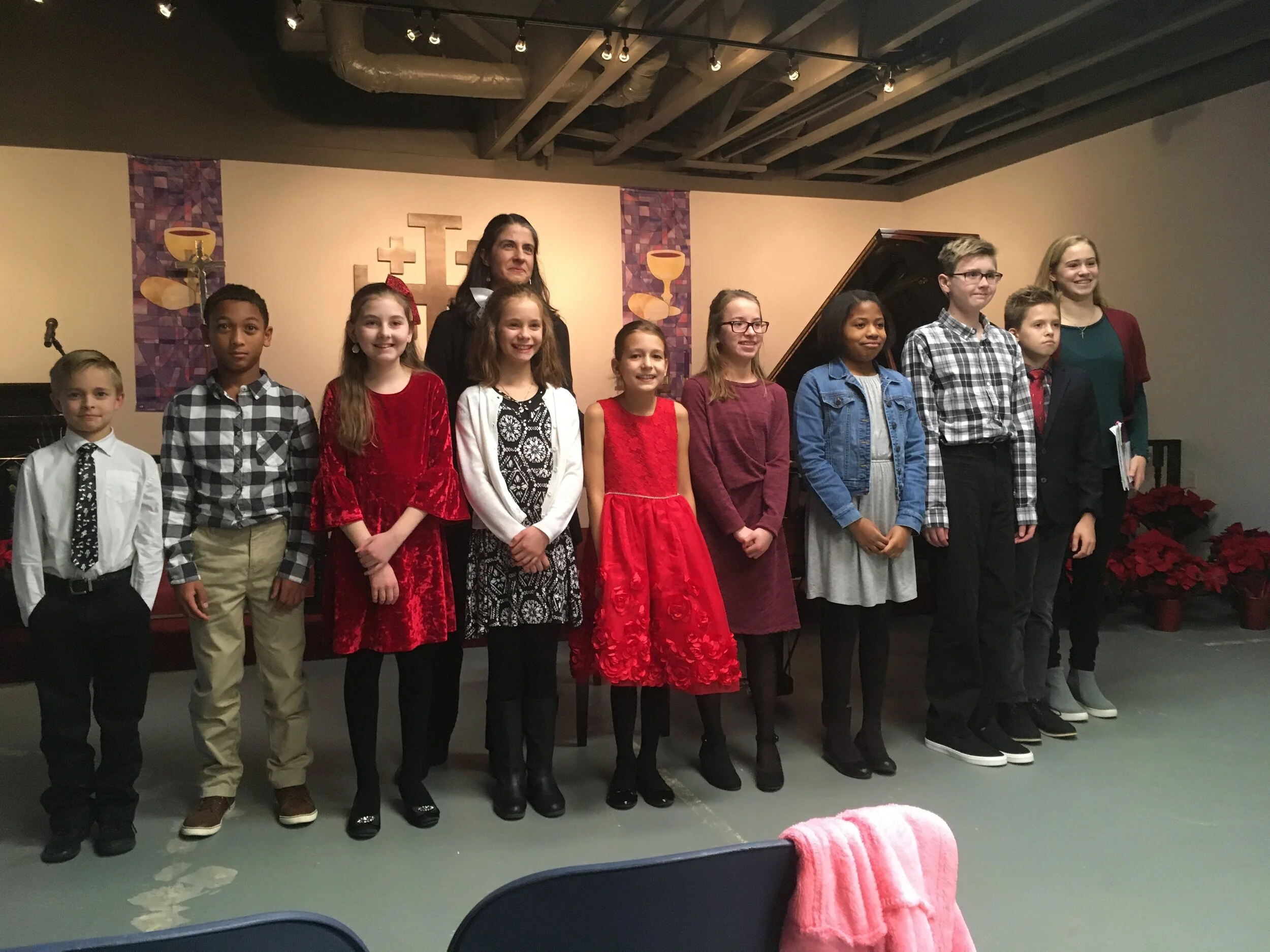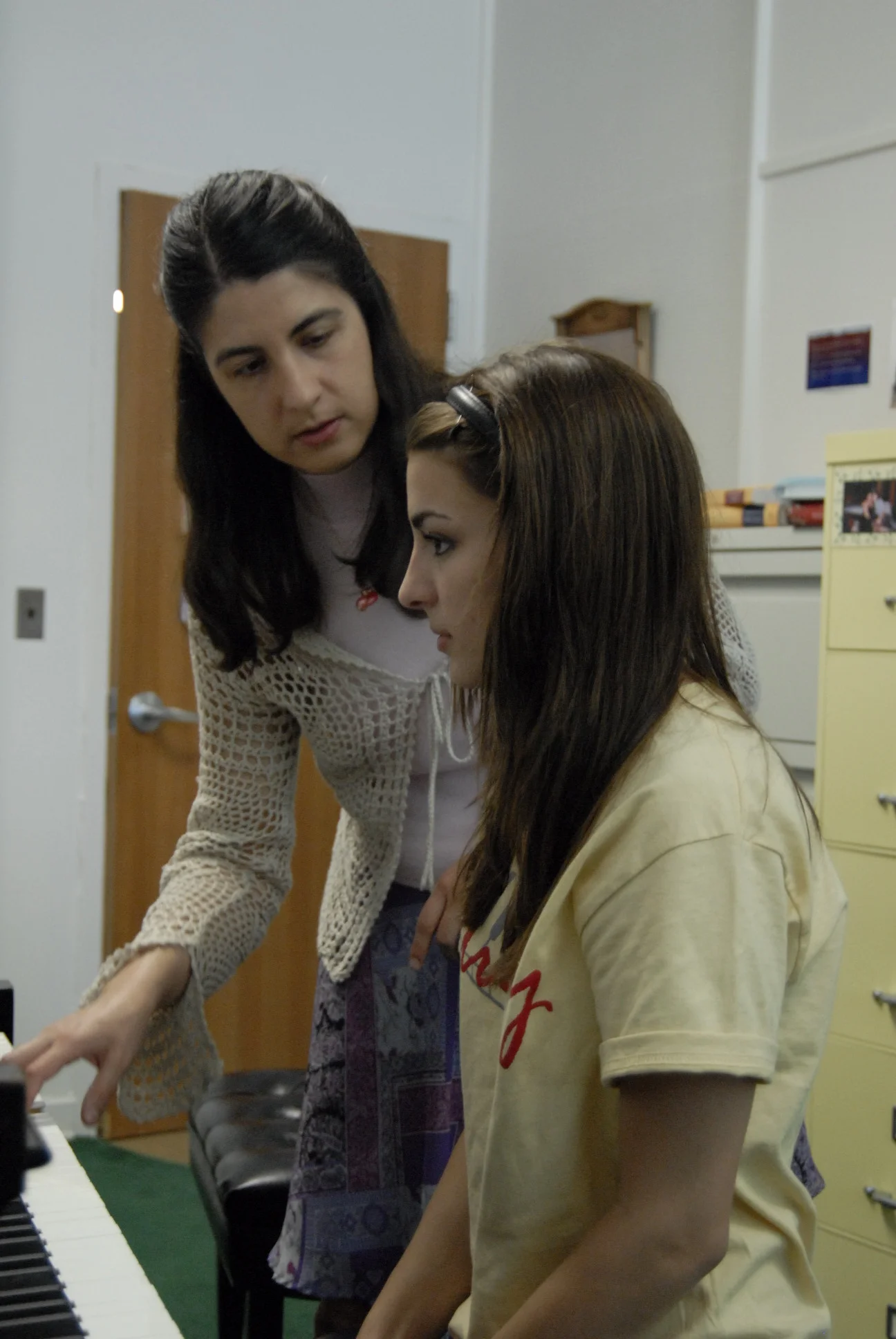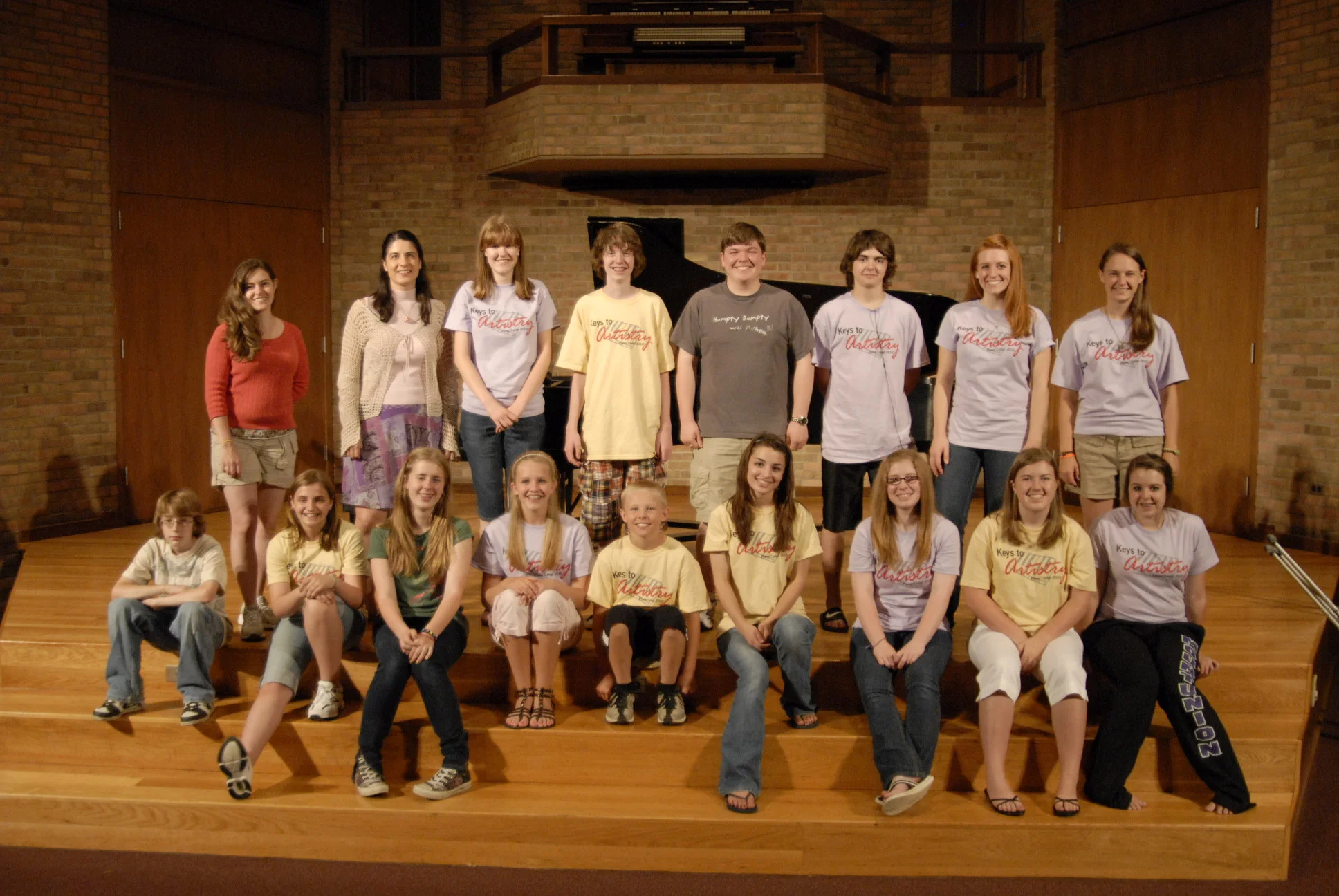



Piano services
Piano services
Maira's Performances
Sample Maira's live performances here, or go to Maira's YouTube channel to hear more of her playing.
Call (330) 456-0275 or email maira@keystoartistry.com for more information.
RECITALS and PRESENTATIONS
Maira offers:
Solo recitals
Chamber recitals
Lecture recitals
Concerto performances
Masterclasses
Workshops on a variety of topics:
Healthy piano technique
Pianist wellness
Pedaling by ear, not by foot
and more!

Private lessons
Private lessons
Keys to Artistry studio offers private lessons for all ages, from young children to adults.
Benefits of Piano Study on the Human Brain
- “Playing a musical instrument develops an important neuro-cognitive skill known as executive function. Strong executive function is critical for the brain to operate in school and in life. Focusing on a topic, memorizing information, inhibition, cognitive flexibility, and paying attention to multiple ideas simultaneously are examples of it. It is at the heart of all learning.” ~Mia Chung of the “Philadelphia Inquirer”
- According to the Associated Press, playing the piano actually grows the non-dominant side of the brain! https://mic.com/articles/91329/science-shows-how-piano-players-brains-are-actually-different-from-everybody-elses#.wyl4utuCZ
- Pianists’ brains are also more agile in many other ways: http://braininspired.net/science-says-piano-players-brains-different-everybody-elses/
- Playing the piano offers an avenue for individual expression and for capturing the beautiful in a way that cannot be quantified; that is music’s best quality.
- Music is not a luxury or a pastime; it is essential to human survival: Nazi camp prisoners made art of every kind; first organized gatherings after 9/11 were musical~ Karl Paulnack of the Boston Conservatory of Music. https://www.bc.edu/content/dam/files/centers/boisi/pdf/s091/Welcome_address_to_freshman_at_Boston_Conservatory.pdf
Please see our Studio Policy for details about lessons, including scheduling and tuition rates for lessons.
Memorization Tips
You mean I have to memorize some of my pieces? Yes. Not only is memorization an excellent exercise to keep our brains fresh, young, and agile, but the extra practice needed to memorize a piece of music means that, for many of us, the piece becomes ingrained much more solidly into our minds, giving us a sense of true confidence when we perform. But there is no doubt memorization is not always easy. Look at the following tips to avoid just mindlessly repeating, hoping the piece will stick. Nobody has time for that!
1) Patterns, patterns, patterns. Always be aware of what the pattern is: a scale? a chord? a rhythmic pattern that repeats? How many times? Never try to memorize just by rote repetition.
2) We learn in three ways, and we all have some combination of these three: aural (what it sounds like), visual (what it looks like on the page), and muscle memory (what if feels like to play it).
- Some memorization will happen just by playing something many times. That's why we practice. You'll remember what the piece sounds like, looks like, feels like.
- When you find a spot you can't just play without looking at the music, break it down. Is there a pattern? If I'm missing a note, what am I missing? Am I playing too high, too low, etc., and how can I adjust? If you break down and understand the spot that you didn't previously have memorized, you can make a strong spot out of a previously weak spot.
3) Small steps. Don't try to memorize large sections of your piece at once. You'll forget many things and feel discouraged. Instead, make small goals: "Today, I'll memorize these four (or eight, or whatever) measures of my music." And do so very thoroughly, looking at patterns, and trying to boil down the passage to a couple concepts. For example, you could say "The first two measures are a C Major chord going down, then I play the scale going up." Or, "these four measures have the same rhythm and melody, but each measure starts a step higher than the previous one."
4) Add it up. Make sure you can play each segment confidently, then start to "glue" them together. See if you can play two segments back to back. It may take practicing just the last measure of the first segment into the first measure of the next segment to iron out the transition.
5) Be confident in your part. You should be able to play your music from memory fluently many times before expecting that you'll remember it next time, or in ensemble, or in a performance situation. Those factors offer distractions that you don't have in the practice room when you're practicing your part alone.
6) Starting spots! Every four measures or so, make a check-mark for a starting spot. Then practice being able to jump AHEAD to your next starting spot, and the next one, and so on. You'll need to work on learning how to start in all those places. But if you get lost in performance, being able to jump ahead and rejoin the music a couple measures later is vital, and practicing having starting spots and jumping ahead to them gives you a much stronger sense of confidence that you'll be fine no matter what.
7) Keep it fresh. Don't assume that if you memorized it once, it will always be there. If you haven't played it in a while, brush up on it before your next rehearsal.
8) How does it fit? If you’re working on a piece for an ensemble, listen (quite a few times) to a good recording of the piece, so you can hear what your part sounds like in the context of the whole piece. Then, you won't be stuck just counting 32 measures of rest during which the time signature changes four times and worry about when to come in next.
8) Make music! Most importantly, get to the point where you feel so comfortable with the music, you just sit down (or stand up) and make the music happen. Ideally, when you have a piece learned really well, you should be able to just listen as you are making the music, instead of thinking about what note comes next, or how to make that next passage sound clean. That's what it is all about: making music! The point is not to just have it memorized (you could memorize your textbooks if you just want a memorization exercise); the point is to MAKE MUSIC!

Classes and Events
Classes and Events
Studio Classes
Starting fall 2025, studio classes will be offered once every week or every other week for intermediate and advanced students. These classes offer an opportunity to practice performing and critical listening skills as we try out upcoming recital repertoire and offer constructive criticism to each other. Studio class will not incur additional fees as the cost is included in students’ regular tuition cost. In order to ensure an audience for studio class performers, we will hold studio class only if four or more students are signed up for any particular class. More details coming soon!
Beginning/Intermediate Adult Group Classes
We hold group classes for adults who are interested in learning piano but do not have the time and/or funds to invest in one-on-one private lessons. Currently, our group classes are held at 6 and 7 pm on Thursday evenings and are priced at $20 per class. Send us an email in the Contact tab at the top of the webpage to inquire about joining our group classes!
Keys to Artistry Studio Events (2025-26)
Check out our professional and advanced student Keys to Artistry Concert series!
Student Events
August 25: Fall 2025 term begins
August 30: Studio pool party; 1-4 pm (if you can, please bring a snack or beverage to share!)
September 28: Studio student recital; 4 pm
October 18: Stark County Music Teachers’ Art Recital; 11 am at Trinity United Church of Christ at 3909 Blackburn Road NW (registration deadline is October 3)
November 15: Scales Olympics, time and location TBA
December 21: Studio student recital; 4 pm
December 23: Last day of Fall Term
December 24-January 4: Winter break—No lessons or classes
January 5: Spring 2026 term begins
February 20: Stark County Music Teachers’ Collaborative Recital; 7 pm at Trinity UCC
March 7 and 14: Stark County Music Teachers’ Ribbon Festival; exact times for our studio TBA
March 21-25: Music Teachers’ National Association annual conference; No classes or lessons
March 29: Stark County Music Teachers’ Honors Recital; 3 pm at Trinity UCC (by teacher invitation only)
May 16: Studio student recital; 4 pm
Previous Keys to Artistry Piano Camp Memories
Practicing dilligently!
Theory Fun!
Musical Crafts
Bass clef comes to life in Perler Beads!
Creativity
Lego piano duet!
And the magical "Slide-ano"; Slide, piano, and recital hall all in one!
Picnic lunch
Summer treats!
Swinging along!
Fun playtime!
Summer fun
at the playground!









